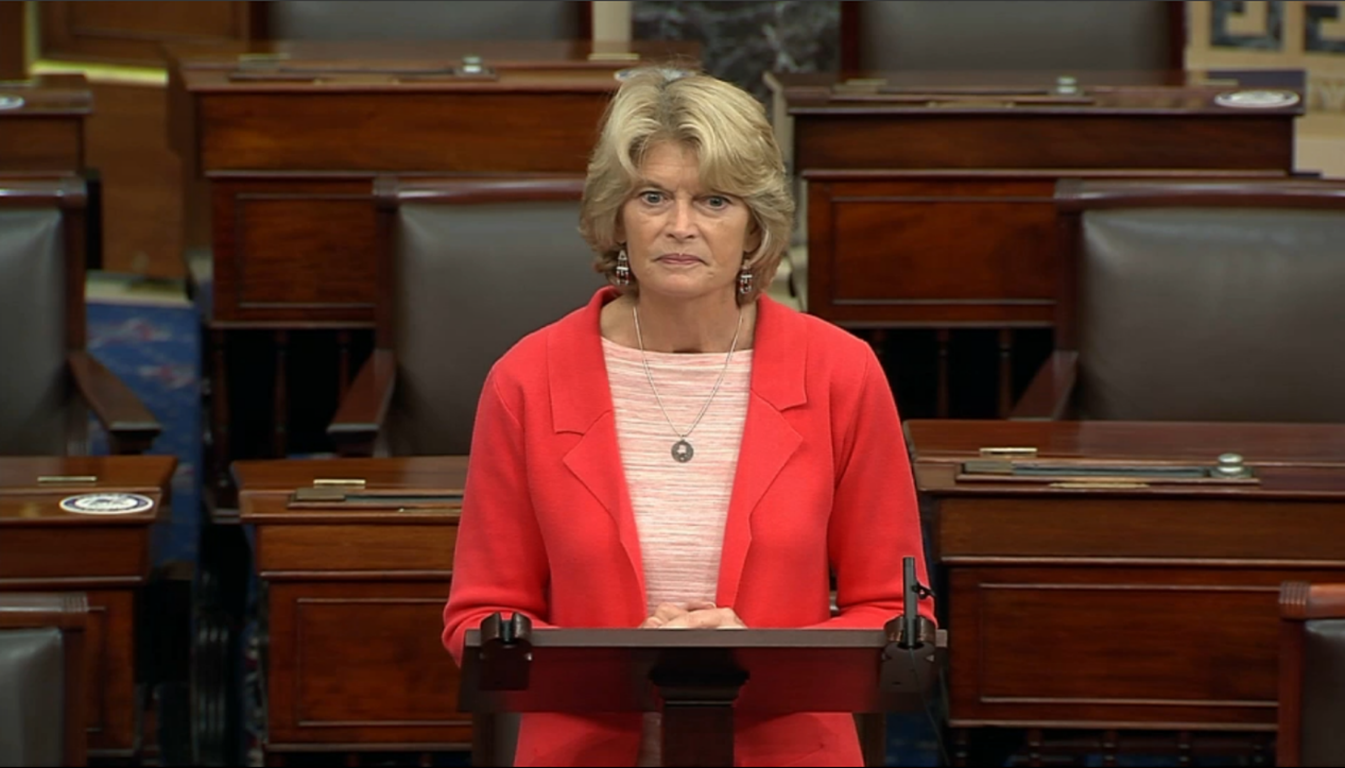Murkowski Votes to Confirm Judge Amy Coney Barrett to Supreme Court
U.S. Senator Lisa Murkowski (R-AK) today voted to confirm Judge Amy Coney Barrett to serve as the next Associate Justice of the U.S. Supreme Court. The nomination was confirmed by a vote of 52-48. On Saturday, prior to the vote, Senator Murkowski spoke on the Senate floor to explain her opposition to the process, but turning to the decision of whether Judge Amy Coney Barrett is qualified to serve on the highest court in the land, announced she would vote in favor of the nominee.
“My constitutional responsibility is to now look beyond process and to vote based on a solid evaluation of her qualifications and fitness of judicial temperament,” said Senator Murkowski. “I have reviewed Judge Barrett’s confirmation hearing and her writings. I also had a lengthy discussion with her this week to delve further into her record and views of jurisprudence. It is clear that she is qualified by any objective standard and has received the highest possible rating from the American Bar Association. She has demonstrated a strong command of the law, intellect, discipline, and, ultimately, the capability to hold the position of Associate Justice of the Supreme Court.”
In Case You Missed It:
Click here for Senator Murkowski’s full statement announcing her vote.
Click here to watch Senator Murkowski’s floor speech.
Click here to read Senator Murkowski’s floor speech.

Speech Excerpts:
- “I have looked inward, considering in these difficult days what I believe is best for the institutions of our government. And I recognize that confirming this nominee is not going to heal, it’s not going to salve the wounds that those institutions have endured. But neither will threats that, should the balance of power in this chamber change, that “everything is on the table” – including the end of the legislative filibuster and packing the Court.”
- “I do not believe that moving forward on a nominee just over a week removed from a pitched presidential election, when partisan tensions are running about as high as they could, I don’t believe this will help our country become a better version of itself. But frankly, I have lost that procedural fight.”
- “So what I can do now is be consistent with the precedent that I set for myself, and oppose a process that I said should not move forward. And I have done that. But at the end of the process is the substantive question of whether Judge Barrett should be categorically rejected as an Associate Justice in order to underscore my procedural objection.”
- “I’ve done my due diligence in my role of advice and consent. I have worked through the articles that she has written, the cases that she has written. I have engaged in a lengthy one-on-one with her. I watched both full days when she appeared before the Judiciary Committee. She presented herself admirably under a difficult situation.”
- “I have concluded that she is the sort of person we want on the Supreme Court. Her legal writing is excellent and will be an asset to her, as well as future generations of lawyers as they read through her opinions. Her intellectual curiosity, which is demonstrated by the depth and breadth of her academic work as a professor, will also serve the country well. Her temperament and her very patient nature were on full display over the course of the hearing.”
- “I had a good, I think very substantive, discussion with Judge Barrett about some Alaska related matters, focusing on Alaska-specific statutes like ANILCA. I raised some of the public safety challenges that we face in my home state that serve to undermine the principal of equal justice under the law. I raised the issue of voting rights and access to the ballot.”
- “It was important for me to hear and to better understand her views on precedent and her evaluation process, specifically the weight that she affords reliance on decisions that have been in place for decades, such as Roe v. Wade. We discussed the doctrine of severability in regards to the Affordable Care Act case. We spoke at length about my concern that the Supreme Court is increasingly viewed as political by the public and what that then does to erode the public confidence in the impartiality of our courts. We talked about the criteria and the evaluation that a Justice would undergo for purposes of a recusal from a matter.”
- “Justices should come to the Court with an open mind, willing to be convinced by the arguments presented in each case, to exchange thoughts with their colleagues, to learn new things, and rule as the law requires. And I am convinced that Judge Barrett will do just that.”








